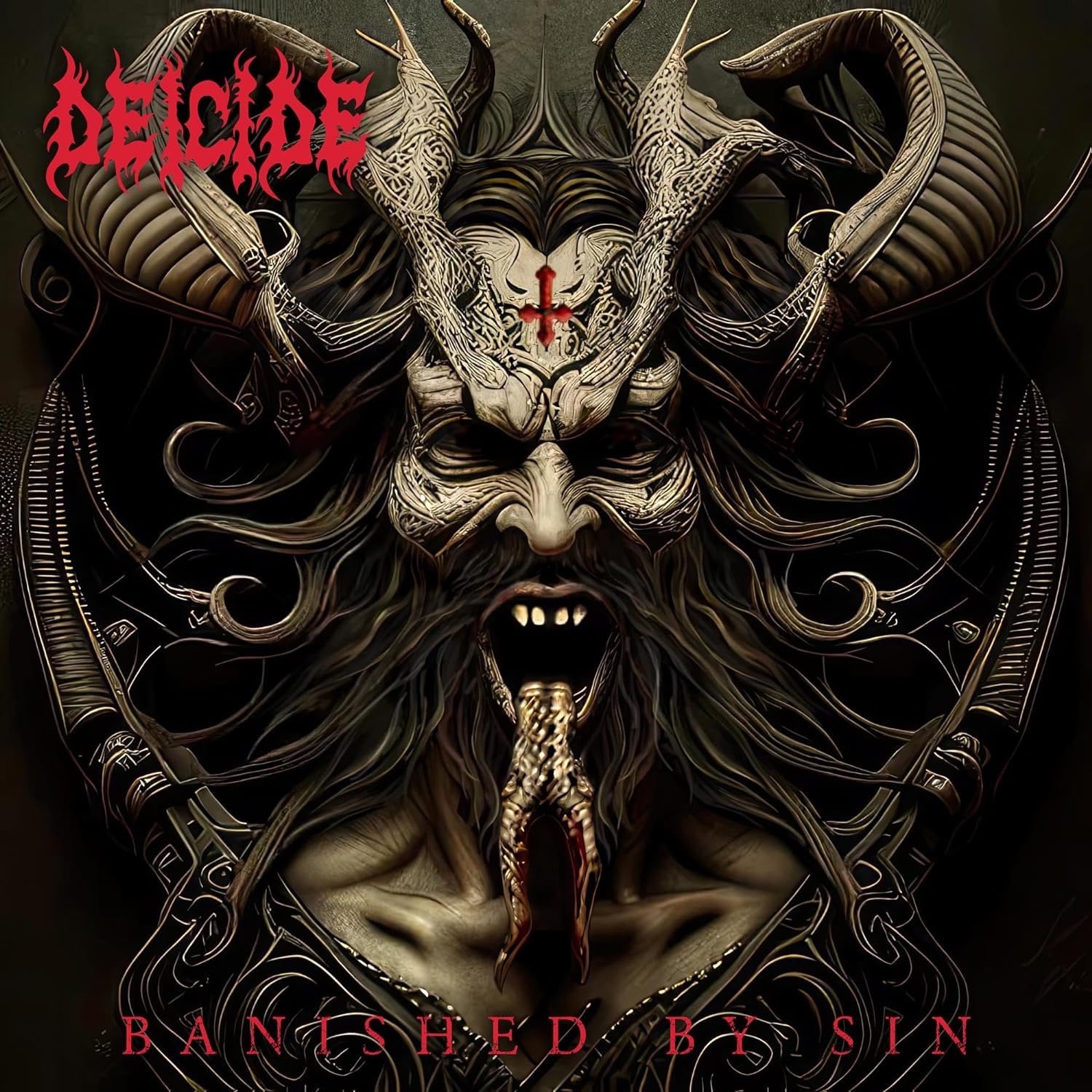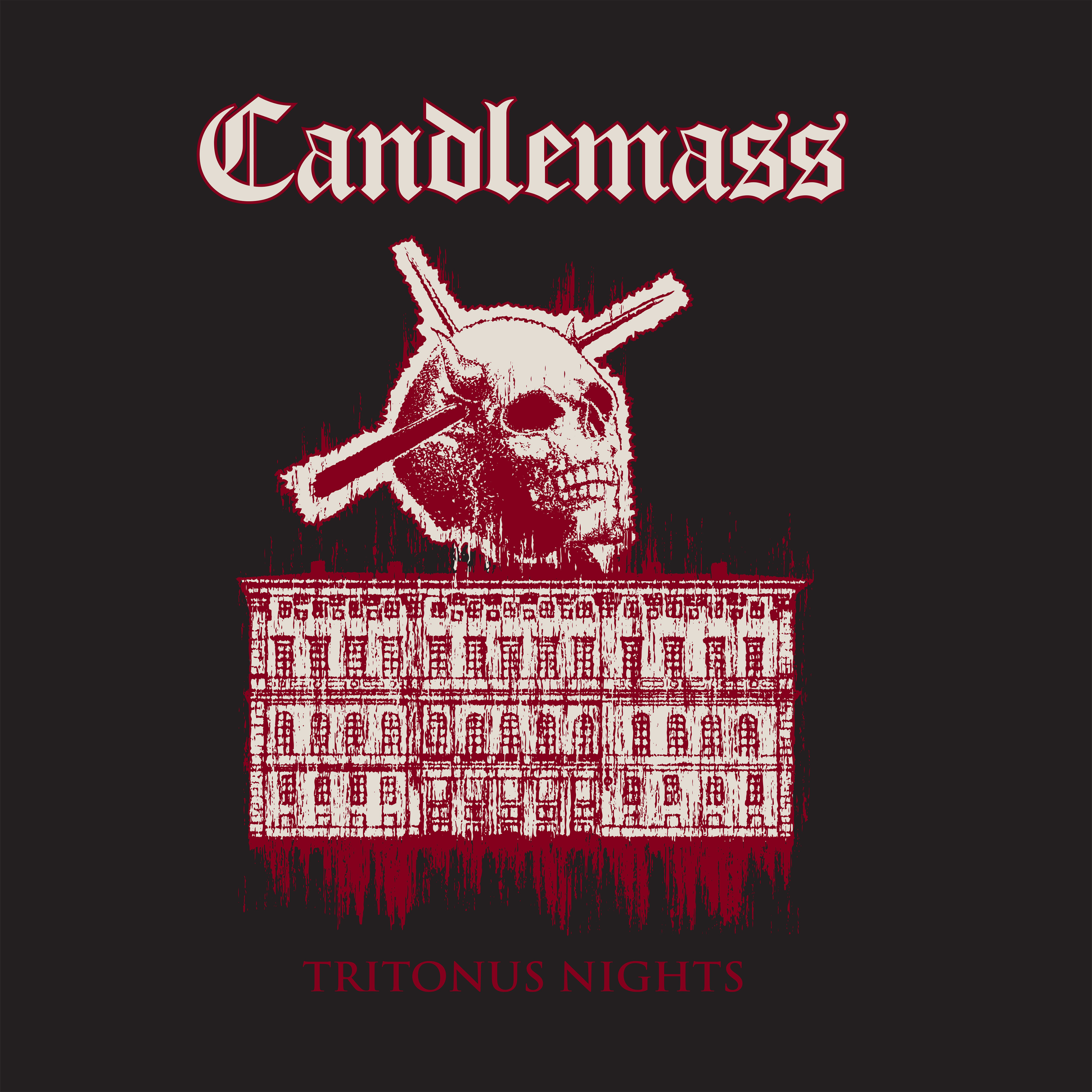Trying to review Cthulhu Rise is like trying to review a Rubix Cube, such is the changeable nature of the band’s intense take on metallic jazz. A band divorced from the notion of song titles (simply naming each piece ‘Opus’ and assigning it a number), lyrics (you would need a PhD in advanced mathematics to construct lyrics and melodies over the band’s avant-garde assault) and typical rock imagery (the band are represented here by hand-crafted drawings), Cthulhu Rise are a unique proposition whose musical approach lies somewhere directly between Miles Davis (‘Bitches brew’ in particular) and Fantomas with hints of Dillinger Escape Plan and Dave Brubeck thrown in for good measure.
Indeed there is much to support the notion that this is an evolved form of jazz, upgraded and given new, metallic body armour to be sure, but nonetheless jazz as its most advanced innovators would surely have embraced even as far back as the heady days of the seventies. OK, right now I can hear a thousand purists roaring in rage, but consider Miles Davis’ assertion that he “could put together the greatest rock and roll band you ever heard” shortly before putting together the phenominal work of art that is ‘bitches brew’ – Miles was not afraid to use cut and paste techniques in the studio, nor was he intimidated by the electric guitar (this is the man who bought the astounding John Mclaughlin into the fold after all), and whilst Cthulhu rise are undoubtedly heavy, it is their jazz sensibility and not the metallic elements that stand at the fore of their music. No, Miles would have embraced this cataclysmically heavy music whole heartedly, and would have loved this brave, adventurous exploration of jazz in the modern era.
So, when placing ‘42’ into your player you’ll be greeted by the piano-led introduction to ‘Opus 24’ which takes the blueprint of Dave Brubeck and sends it spinning out into Mike Patton territory leaving poor Dave stumbling around like the Terminator, clad in flesh and blood but imbued with a metallic core that is utterly indestructible. Make no mistake, whilst Cthulhu rise are a pleasure to listen to, this is no easy ride. Structure and form are loosely traced at best; whilst Yury Demirskiy’s bass work is nothing short of astounding. How much practice this band put in before laying these tracks down is anyone’s guess, but by god are they tight. ‘Opus 22’ sees Yury launch the assault only for Stanislav “beaver” Bobritskiy’s violent keyboard stabs to send things spiralling towards a white hot centre where Ivan “S-D” Serdyuk’s guitar and Andy “Gone” Prischenko’s searing percussion blaze with furious intensity.. Once again it seems to be Dave Brubeck who provides the inspiration, whilst the guttural guitars of the Melvins and the stop/start dynamic of Dillinger Escape plan also inform proceedings. ‘Opus 23’ opens on a metallic trip only for the piano to come in and add a whimsical layer before the band realign themselves and unleash a devastating riff that wouldn’t sound out of place on a Tool record. It’s uncompromisingly heavy and the off-kilter rhythm enough to keep the track perpetually out of reach, whilst the mid-section of the song takes you in a direction so unexpected you have to check you are listening to the same track.
Miles Davis provides the inspiration for the brutal groove of ‘Opus 26’ which seems to be cut from about eight songs at once, occasionally settling into a groove that slides out of your grasp just as you think you have it nailed. ‘Opus 27’ offers up a similar experience but manages to draw in some Pink Floyd channelled via Rick Wakeman on its unhinged keyboard solo. ‘Opus 19’, on the other hand, holds the keys to the gateway to insanity, all whirling percussion and guitar riffs torn from the merry songbook of ‘Kerry King plays the jazz greats’ (Editor’s note – there is no such book, Phil just gets carried away sometimes!). ‘Opus 12’ sees Beaver attack his keyboards with a vigour that recalls John Lord in his prime, the guitars a blurry, coruscating firestorm erupting behind the pummelling percussive assault laid down by Andy. ‘Opus 28’ softens the jagged edges splintering against you form the previous track, the guitars in sharper focus, although still explosively loud, whilst the keyboards seem piped in from an underground jazz bar where whiskey is the only beverage to be seen consuming. ‘Opus 29’ once again allows bassist Yury to shine, and you have to fear for anyone close to the man’s fret board, for after such vicious assaults it must surely be smoking. ‘Opus 31’ (which ends the album proper) sees Cthulhu Rise deliver the last word on their smoking hot take on jazz, placing themselves firmly within a genre of one and cementing the reputation of their musical prowess into the bargain. A bonus track in the form of the seven minute ‘opus 32’ even offers up a vision of the work the band are already developing, awakening a ravenous appetite for more material, with its subtle guitar and hypnotic bass work it’s like watching the band develop and mature in front of your very eyes.
Cthulhu Rise are a uniquely powerful and wonderfully talented band whose modern take on jazz aligns them with the innovators of yesteryear. Where so many bands are happy to develop and augment existing musical works, here Cthulhu Rise neatly develop the form of jazz in a way that hasn’t been attempted since 1969. This is stunningly innovative stuff and if it can only reach a wide audience it will undoubtedly be heralded as a subversive masterpiece in years to come. Open your mind and experience Cthulhu Rise, if you understand the power of jazz you will embrace this album wholeheartedly.











Leave a Reply